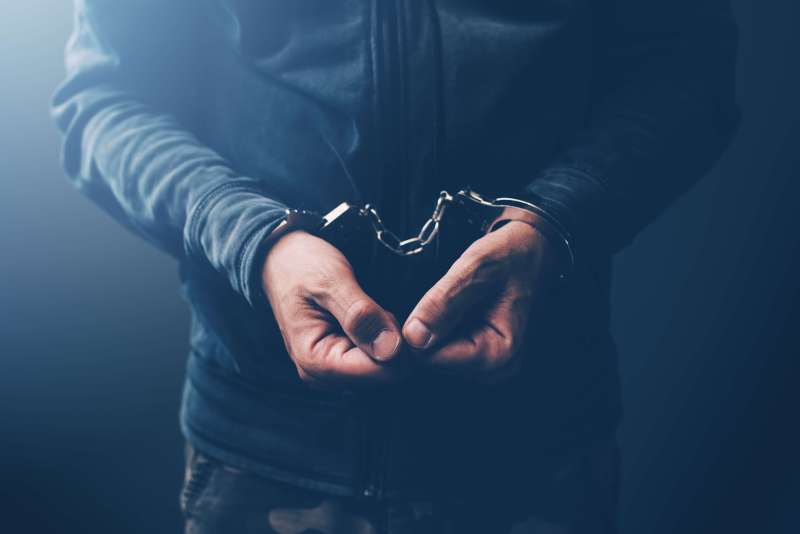
In simple terms, a public record is a document or other form of documented information that has not been deemed confidential or private. Since the 1960s, the American government has practiced the majority of its transactions between itself and the citizens publicly for all to see.
The difference between public records and private records is obviously that public records can be viewed by the public, and private records can not. However, what most people aren’t aware of is that by default, most records that occur between the government and the people are not private. In most cases, in order for government records to become private, they have to meet certain criteria and be ordered private by a judge.
The only time most records can be hidden from public view is when they are of matters of national security or can hinder the safety of the people in some way.
Table of Contents
Why Public Records Are Important
Imagine living in a world where the government could hide all of its records from the public view. Every real estate transaction, every court case, every lawsuit, and so on would be hidden from the eyes of the citizens. In a perfect world where everybody could be trusted, there would not be a problem with having the luxury of privacy when it comes to government matters. However, in the past, high-ranking government officials with an agenda of their own have taken advantage of secrecy and used it to leverage power for themselves.
The concept of a recording system that allows for all of the people in the communities to see the details of court cases and so on brings the advantage of transparency and honesty into the offices of the government officials.
Organized, detailed records will show a clear path from one side of a transaction to the other. The general public will be able to follow the money, the motive, and the end results of countless interactions between everyday citizens and the governing factors of their communities.
In addition to keeping all of the government business transparent, public records also shed light on the details about the everyday people we surround ourselves with. In general, when people have been convicted for serious crimes and intend to commit more of them, they do not alert their neighbors and associates of their plans. Having access to public records is a way to become aware of possible dangers that could be lurking right under the surface of your community.
Gaining Access to Public Records
Although there are laws in place that ensure transparency in government matters federally, all states have their own laws and regulations in terms of public information. Some states might have different opinions regarding what should or should not be public records. Depending on where you live and the types of records that you would like to access, it could be very challenging to obtain public records in the traditional way by filing for them through the courthouse.
Although most of the states are broken up into counties, each state can have different regulations regarding the accessibility of public information.
In some counties, you can access public information through the county website as long as you agree to their terms and pay the required fees. In other counties, you will have to physically visit the recorder’s office and officially request the documents in writing.
One of the fastest ways to get access to public records is by using the SpyFly website and conducting a private online search through their databases. SpyFly allows its users to search records by name and state to find important records such as:
- Criminal Records
- Court Records
- Arrest Records
- Jail Records
- Felony Records
- Driving Records
- State Records
- Police Records
- Phone Records
The reason why records like these are so important is that they give detailed information about individuals that could be a threat to your neighborhood, your homes, and even your children.
If you use services such as SpyFly to access and discover public information in the way that they are intended to be used, which is for informational purposes only, you can educate yourself about the people that are around you and your loved ones without having to guess which ones are safe – and which ones aren’t.
Criminal Records
The term “criminal records” can be ambiguous unless you specify the type of criminal records that you are referring to. Being arrested for a crime does not make a person a criminal. Sometimes the police will arrest people for crimes and know that they are not guilty of them. Cops do this because the people they are questioning might have a connection to the person or people responsible for the crime. Often, when a person is threatened with being charged for the crime, they will give the officers any and all information that they have.
Officers bring suspects in for questioning all of the time, but most of the people are innocent or were not the offender.
A criminal history is when the person has been involved with criminal activity and has been found guilty of at least one crime.
When somebody goes through the court system for a crime, each step of the way is documented, from the arrest to the final outcome. Once they have been convicted of the crime, they will have an official criminal record.
Court Records
There are countless reasons why a person would have to go to court. Some people go to court because they broke the law. Others go to court in order to be a witness. There are family court, civil court, criminal court, and other types of court hearings depending on the county, state, or federal jurisdiction that the case is in.
Court records are the records that go along with the entire case from start to finish. Every motion, every statement, and every decision is noted and recorded so that there are no questions regarding the validity of a proceeding and its outcome.
Arrest Records
People get arrested every day for various reasons. Some people commit unthinkable crimes and are held accountable for them. Other people get written up for minor infractions of the law. When an officer actually puts a person under arrest, an official recording begins. The suspect is detained, Mirandized, then sometimes taken to jail for processing and booking.
In the event of an arrest and an official jail booking, the jail will collect information such as personal identifiers, name, birthdate, etc. In addition to general information, the booking officer will collect fingerprints and photographs. Booking photos, AKA mugshots, are considered public records and can be accessed by people that look for them.

Jail Records
Not everybody that gets arrested goes to jail. An officer can arrest a person and detain them at the scene of the crime for a period of time, then let them go for various reasons depending on the situation.
Jail records start at the time of booking but continue to record as the inmate stays in jail custody. Whenever the inmate gets a visit, talks on the telephone, visits a medical professional, or even sees an attorney, the events are documented and become jail records.
Felony Records
Criminals that have gone to court and been found guilty of crimes that are classified as felonies obtain felony records. Depending on the county of conviction and even the state of the offense, the records may not be labeled as “felony records” but merely as court records.
It is important to view the details of a case as opposed to merely assuming that since a person was involved with a felony record that they are guilty of a felony. The difference between having access to raw public records and getting confirmed information is that when you obtain the raw data, you have to be able to understand what you are looking at before you jump to conclusions that could be false.
Driving Records
Driving records are a compilation of the records that a person has collected over the years. In most cases, the only time somebody will have driving records is when they are involved in accidents, get into trouble, or receive tickets. Basically, a person’s driving record is their driving history. The less that there is in it, the better off they are.
State Records
State records are the records that the state keeps. Each state will have a different way of collecting, controlling, and distributing state records. Most of the records that are recorded in terms of court proceedings are county records. However, all of the county records are connected to the state that they belong to.
State facilities such as prisons and mental institutions will have records of the people that served sentences in them. These records will be accessible by any state law agency that needs them.
Police Records
Most of the time, when a person comes into contact with the police, there will be a record of it. Police records can come in many forms. When a person is arrested and booked by the city police as opposed to the county sheriff, the city will have records of the event. There are different types of police officers, such as state police and city police. The way that police records are managed will depend on how the agency requires them to be handled.
Phone Records
Depending on what state you live in and the laws that govern that area, you might be able to get access to a person’s phone records. However, it is not legal to obtain a person’s phone records without their permission.
SpyFly can help you find people by using phone numbers and names to narrow down possible individuals that could be connected to a specific phone number.
Conducting Public Record Searches
It is important to understand that there are laws in place by the Fair Credit Reporting Act that protect people from unreliable data sources that would otherwise influence decisions regarding employment, housing, and credit approval. When you find information on websites like SpyFly, it is a collection of information that has accumulated over a period of time that could be decades old. SpyFly data is for informational purposes only. It is against the law to use the information you find for anything other than educating yourself about the people who come near you and your family.
DISCLAIMER: SpyFly provides affordable, immediate access to public record information. It is PROHIBITED by law to use our service or the information contained on our website to make decisions about employment, insurance, consumer credit, tenant screening, or for any other purpose subject to the Fair Credit Reporting Act, 15 USC 1681 et seq. SpyFly does not provide private investigator services, consumer reports and is not a consumer reporting agency as defined by the Fair Credit Reporting Act. Please be EXTREMELY careful when reviewing a person’s criminal history. Please DO NOT use this information without further investigating the accuracy of the information. The information available on our website may not be complete, accurate, or current. For more information, please review Spyfly’s Terms of Use.







